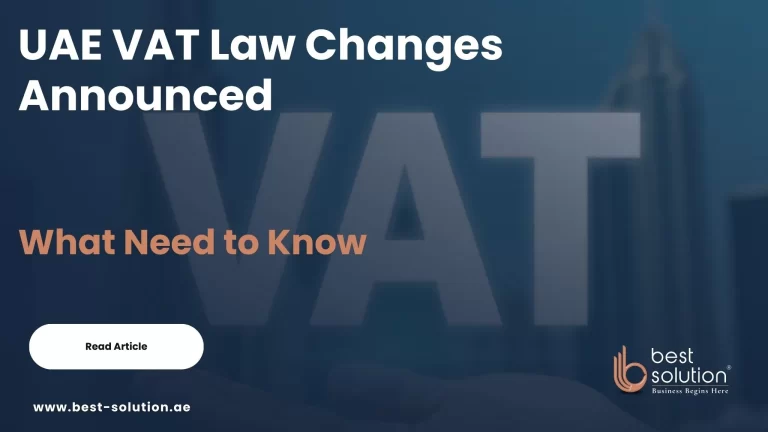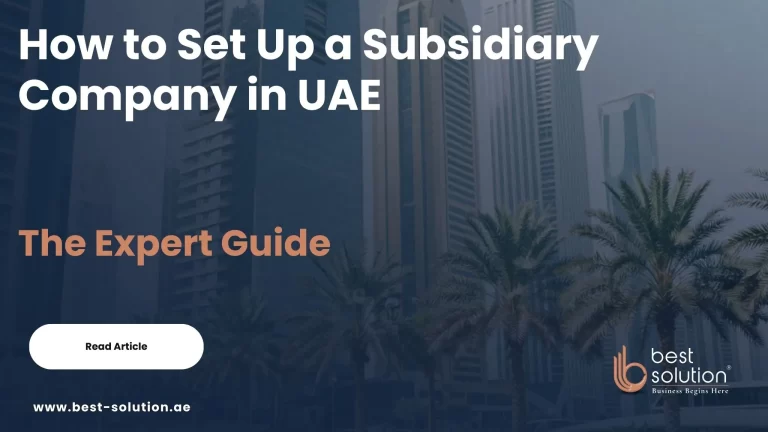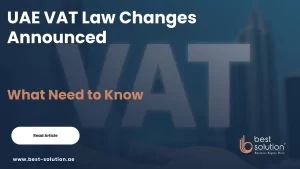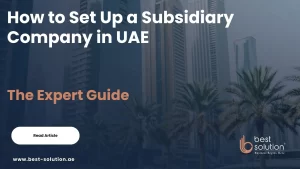That’s why we created this complete guide—to give you a clear, step-by-step understanding of how to get an educational training insitute license in Dubai?. Whether you’re a first-time entrepreneur or an established business expanding into the Dubai diversified market, this guide will help you avoid common mistakes, reduce approval timelines, and launch your institute the right way.
By the end, you’ll have a confident roadmap to start your educational training institute in Dubai—fully compliant, professionally structured, and ready to operate.
Step-by-Step Guide to Getting An Educational Training Institute License in Dubai
Here’s a structured step-by-step process to help you successfully establish your educational training institute:
- Finalize Your Business Plan and Academic Plan
- Choose a Business Structure
- Initial Approval and Trade Name Reservation (DET)
- KHDA Approval
- Secure Your Physical Location & Sign Legal Documents
- Final Submission and Payment Voucher
- Receive Your Educational Training Center License
Step 1: Finalize Your Business Plan and Academic Plan
This first step is crucial—it sets the stage for both your licensing journey and the long-term success of your educational training center in Dubai.
Before you start working on your academic and business plans, it’s important to know who’s in charge of regulating private education in your chosen emirate. Each emirate in the UAE has its own authority that governs and approves educational institutions.
Here’s a quick look at the key regulatory bodies across the emirates:
| Emirates | Authority | Scope | Website |
| Dubai | KHDA (Knowledge and Human Development Authority) | Regulates private schools, universities, and training institutes in Dubai | KHDA |
| Abu Dhabi | ADEK (Abu Dhabi Department of Education and Knowledge) | Handles licensing and regulation of private education providers in Abu Dhabi, Al Ain, and Al Dhafra | ADEK |
| Sharjah | Sharjah Private Education Authority (SPEA) | Oversees private educational institutions within the Sharjah emirate | Sharjah Private Education Authority |
| Other Emirates (Ajman, Fujairah, Umm Al Quwain, Ras Al Khaimah) | Ministry of Education (MoE) | Regulates both public and private education institutions in these emirates | Ministry of Education |
Let’s break down what is a business plan and academic plan, what should include in this:
Business Plan: A business plan is a well-structured, formal document that outlines your company’s vision, target market, financial projections, and marketing strategy. It’s not just a tool for internal clarity—it’s also essential for securing approvals from authorities like KHDA, free zone regulators, or potential investors. A solid business plan reflects that your institute is professionally planned, financially viable, and aligned with the UAE’s education standards.
Academic & Course Plan: The academic plan document details the educational vision, program structure, and learning outcomes of your institute. Your course plan must include:
- The list of courses you intend to offer.
- Detailed curriculum, syllabus and learning outcomes for each course.
- The qualifications and experience of your proposed instructors.
- Your quality assurance and assessment methods.
You can go ahead and submit both documents during the initial approval stage with the authority. They’ll review them to make sure your institute meets all the required quality and compliance standards before issuing the license.
Submitted documents are typically valid throughout the pre-approval and licensing process. However, if there are significant delays or you revise your business model along the way, you may be required to update them. Once your license is issued, any major changes—like introducing new courses or modifying your training format—must be reflected in your business plan and re-approved by the relevant authority.
We’ve had many investors come to us with just an idea—no clear plan in place. But in a competitive market like Dubai, an idea alone isn’t enough. You need a well-structured business plan that clearly explains your concept, supports your goals, and streamlines the entire setup process. A solid business plan streamlines the entire setup process—keeping everything clear, efficient, and helping you avoid roadblocks along the way.
Step 2: Choose a Business Jurisdiction
Selecting the right jurisdiction is a crucial step in setting up your educational training institute in Dubai. You can either go with a Mainland license or opt for a Free Zone company setup. Each has its own advantages depending on your operational goals-here’s a quick comparison:
- Licensed by DET
- Allows you to operate anywhere in Dubai
- Requires a Local Service Agent (LSA)
Free Zone Setup:
- Licensed by: The respective Free Zone Authority
- 100% foreign ownership
- 0% corporate and personal income tax
- Ideal for institutes targeting international or online learners
Each jurisdiction in Dubai—whether mainland or free zone—has its own set of rules, licensing procedures, and cost structures for setting up a business. Understanding the differences between Mainland business setup and Free Zone setups can help you make the right choice for your business.
Trying to decide between Mainland and Free Zone for your training institute?
The comparison below breaks down all the key differences, so you can make a perfect decision.
| Criteria | Mainland | Free Zone | Better Option |
Type of Training | Academic, K-12, higher education | Vocational, corporate, online, adult training | Depends on training type |
Government Accreditation (KHDA/ADEK) | Required | Not required (for non-academic) | Free Zone (for speed & ease) |
Target Audience | General public, especially children | Adults, professionals, companies | Depends on audience |
License Approval Time | Slower (3–6 months) | Faster (1–3 weeks) | Free Zone |
Setup Cost | Higher (office, fit-out, approvals) | Lower (shared desks, flexible offices) | Free Zone |
| Course Type Flexibility | Regulated (approval needed for each course) | Flexible (more freedom in course content) | Free Zone |
| Can Train Children | Yes (with KHDA/SPEA approval) | No (only adults) | Mainland |
| Issue Degrees / Diplomas | Yes (with accreditation) | No (unless special zone like DAC) | Mainland (for degrees) |
| Brand Credibility (for academic) | High (KHDA-licensed looks official) | Moderate (depends on niche) | Mainland (for reputation) |
| Operate Outside | Yes (anywhere in UAE) | No (unless online or special approval) | Mainland |
| Offer Online Training | Yes | Yes | Both |
| Physical Training Location Required | Yes | Optional (some allow remote/virtual) | Free Zone (for flexibility) |
| Best for Starting Fast & Lean | No | Yes | Freezone |
| Authorities | KHDA (Dubai), ADEK (Abu Dhabi), SPEA (Sharjah) | TECOM License(Dubai Knowledge Park), RAKEZ, SPC, FCC | - |
| New Course / Syllabus Change | Yes – New courses must be approved by KHDA/SPEA | Not required (unless academic) (except in academic zones) | Free Zone (for flexibility) |
| Staff Appointment / Changes Approval | Yes (KHDA/SPEA approval needed) | Not required (unless KHDA-licensed) | Free Zone (for flexibility) |
| Approval for Renovation / Building Changes | Yes (KHDA + Municipality required) | Yes (via Free Zone authority) | Free Zone (for speed & ease) |
You can definitely start a training institute in most of the free zones, but what kind of training you’re allowed to offer—and what approvals you’ll need—depends on the zone.
Here’s how they break down:
| Free Zone | Academic or Vocational? | KHDA / Approval Required? | Notes |
DIAC (Dubai International Academic City) | Academic | Yes, KHDA | For universities, higher ed, accredited institutions |
DKP (Dubai Knowledge Park) | Vocational / Professional | Not needed (for non-academic zone) | Great for corporate, soft skill, IT training |
RAKEZ Academic Zone | Academic + Vocational | Yes (RAKEZ Academic approval) | Offers wide scope including schools and training centers |
SPC Free Zone (Sharjah Publishing City) | Vocational | Not needed | For media, publishing, creative skills training |
SPC Free Zone (Sharjah Publishing City) | Vocational | Not needed | Free Zone |
| SRTIP (Sharjah Research Technology and Innovation Park) | Vocational / Specialized R&D | Not usually required | Ideal for innovation, STEM, and tech-focused training |
Creative City, Fujairah | Vocational / Creative | Not required | For media, content, design, and digital skills training |
Ajman Free Zone | Vocational | Not required | For general skill development, business training, etc. |
Step 3: Initial Approval
Initial Approval is the first official NOC (No Objection Certificate) from the Dubai Department of Economy and Tourism (DET) or the relevant Free Zone Authority to start a business in Dubai. It is a mandatory prerequisite before you proceed to the next steps. For mainland businesses, it is granted by the Department of Economy and Tourism (DET)—the key government body that handles business licensing, regulates economic activities, and promotes investment across Dubai.
For Free zone setups, the Initial Approval comes from the respective Free Zone Authority. It’s generally quicker and less document-heavy than the DET’s Mainland process—making it a more streamlined option for many entrepreneurs.
To obtain Initial Approval, you’ll need to submit your proposed business activity, passport copies of all shareholders, and the initial application to the concerned authorities. The approval process from DET typically takes 2–3 days. Free zone initial approval usually takes just 1 to 3 working days. Make sure your business activities comply with authority standards.
This approval confirms that the government has no objection to your proposed business activity. Without Initial Approval, you cannot reserve your trade name or apply for approvals from other relevant authorities.
Initial approval from the Dubai Department of Economy and Tourism (DET) is usually valid for 6 months from the date it’s issued. In certain cases, DET may allow a renewal or extension—but that’s handled on a case-by-case basis.
In free zones, the validity period is generally 30 to 90 days, depending on the specific authority. Some free zones may offer a one-time extension, but it’s best not to rely on that.
If you don’t complete your company formation within the approval’s validity period, you might have to resubmit documents or repeat steps—which can lead to unnecessary delays and incur extra costs.
Based on Best Solution’s internal data, over 90% of our clients receive DET approvals within 5 working days. More than 85% successfully pass KHDA inspections on the first attempt, thanks to our expert-led, end-to-end documentation support.
Step 4: Trade Name Reservation
It is time to reserve your trade name. Reserving a trade name secures your brand identity in Dubai’s official business registry. You’ll need to choose a unique, appropriate, and legally compliant name for your training center that adheres to UAE naming conventions.
For mainland businesses, you can easily check the availability of your desired trade name and reserve it through the Dubai Department of Economy and Tourism (DET) online portal. Once submitted, the approval typically comes through within 24 hours. If approved, you’ll receive a Trade Name Reservation Certificate, which is valid for 6 months. This certificate is a key step in moving forward with your Dubai business license application.
In free zones, trade name reservation is handled directly by the respective Free Zone Authority. While some zones follow DET guidelines, others operate under their own naming rules and procedures. Once you apply, you can typically expect to receive the Trade Name Reservation Certificate within 1 to 3 working days, depending on the Free Zone. The certificate is usually valid for 30 to 90 days.
When choosing a trade name for your business, it’s essential to cross-check it against the UAE’s National Economic Registry to avoid any conflicts or duplication.
Need help picking a name?
Step 5: The KHDA or Concerned Authority Approval
This is often the most detailed and rigorous part of the process. You’ll need to submit a comprehensive application package to KHDA, including all the required documents listed below:
- The DET Initial Approval certificate.
- The detailed academic and course plan.
- CVs and qualification documents of the center manager and trainers.
- A registration form for the training institute.
The KHDA will thoroughly review your application to ensure it aligns with Dubai’s educational standards. You can expect to receive a KHDA-approved training license within 2 weeks, provided all documents and requirements are correctly submitted.
But in free zones, KHDA approval is not always required. It largely depends on whether you’re operating in an academic zone (like DIAC or RAKEZ Academic Zone), where KHDA approval is a must — or a non-academic zone (like SPC Free Zone or Creative City), where it’s not typically needed for adult or vocational training institute.
An institute approved by KHDA earns greater public trust and credibility. It also becomes eligible for listing in official educational directories, helping attract more students and high-value corporate training opportunities. KHDA approvals are typically valid for 1 year (aligned with your trade license).You must renew it annually.
If KHDA spots any mistakes or missing details in your application, they might ask you to submit corrections or additional documents. In some cases, they could put your application on hold—or even reject it altogether. So, before you apply, double-check everything and make sure any required documents are self-attested. A careful review upfront can save you from delays or rework later.
One of our clients, Mr. Mohamed Abdelhalim Mohamed Elgaly Ammar from Egypt, a first-time entrepreneur, initially faced significant delays in obtaining KHDA approval for his institute, Takhassos for Educational Technologies Research & Development Est. With our guidance, they revised the academic plan, aligned it with KHDA standards, and secured approval within two weeks.
The key takeaway? Always prepare a detailed curriculum and ensure trainers meet KHDA’s qualification criteria. Many applicants overlook this, causing setbacks. Real-world experience shows that early expert help can prevent costly mistakes during DET and KHDA approvals for educational training institutes in Dubai.
According to the KHDA’s latest annual report, Dubai saw an uptick in professional and adult training licenses in 2023, reflecting the emirate’s growing demand for skill-based education.
Step 6: Secure Your Physical Location & Sign Legal Documents
While your application is under review by KHDA, you can simultaneously proceed with two essential legal formalities.
- Lease a Facility: It is mandatory to acquire a suitable physical space for your training center. This facility must meet specific KHDA requirements regarding minimum space per student, robust safety standards (including Civil Defence approvals), and appropriate infrastructure conducive to learning. In free zones, it’s the free zone authority that sets the facility standards—usually centered around safety, adequate space, and maintaining a professional learning environment.
- Obtain Ejari: The Ejari certificate is an official document issued by the Dubai Land Department that registers your tenancy contract.Once your tenancy contract for the physical facility is signed, it must be officially registered on the Ejari portal. It confirms that your business has a legal, government-recognized rental agreement. It is essential for getting approvals like trade licenses or KHDA certification. Free zone businesses, however, usually lease office or training space directly from the free zone authority, which maintains its own internal property records—so Ejari isn’t required in most cases.
- Sign Memorandum of Association (MOA): Once your space is finalized, all partners will need to sign the MOA—a key legal document outlining your company’s structure and responsibilities. For a Mainland license, this is often done at a notary public. For UAE Free Zone setups, an MOA is not typically required, but you’ll need to sign equivalent incorporation documents, such as Articles of Association (AOA) or a Board Resolution, depending on the specific free zone authority.
Expert Tip: It’s wise to work with licensed consultants—such as the team at Best Solution—who can guide you in aligning your legal setup with your business goals in Dubai.
Step 7: Final Submission and Payment Voucher
Once you have received the official KHDA approval letter, along with your signed Ejari and MOA, you will submit all documents back to the DET. The DET will review the complete file and, upon approval, issue the final payment voucher.
But in free zones, everything goes through the respective Free Zone Authority—not DET. Each free zone has its own licensing department that manages document checks, issues the payment voucher, and finalizes your business license. Instead of Ejari, most free zones use their own internal lease agreements, which are reviewed and approved by the authority itself.
Pro Tip: Double-check that all documents meet DET’s current formatting and compliance standards to avoid delays.
Step 8: Receive Your Educational Training Center License
After you successfully pay the fees specified in the payment voucher, the DET or concerned authority will officially issue your Educational Training Center License in Dubai.
DET usually issues your Trade License Certificate within 2 to 5 working days. In free zones, the process is often quicker—typically taking 1 to 3 working days, though in some cases it may extend to 5 days, depending on the free zone’s internal procedures. Now you are legally authorized to operate your training institute!.
Whether you’re setting up in the mainland or a free zone, your educational training institute license is valid for 1 year. You’ll need to renew it annually to stay compliant and continue operating without interruption.
Some free zones also offer the option to go for a multi-year license (2 or even 3 years)—which can be a smart move if you want to save time, reduce paperwork, and cut down on annual renewal hassle.
Tip from Experience: One common mistake is submitting incomplete course outlines or vague instructor qualifications—KHDA is very particular about content clarity and trainer credentials.
Our experienced corporate PRO consultants work hand-in-hand with you to ensure every step meets DET and KHDA requirements—smoothly, efficiently, and without hassle. That’s exactly what helped Elya Richards, a seasoned corporate trainer from Italy, when she decided to expand her expertise to Dubai.
At first, she wasn’t sure where to begin. Between navigating KHDA approvals, choosing the right license type, and understanding DET regulations, the process felt overwhelming.
But with expert guidance and a clear roadmap provided by our team, Elya successfully set up her professional training institute in just a few weeks. Today, her center is helping hundreds of professionals upskill across sectors—a dream she once thought was too complex to achieve in Dubai.
Download our FREE checklist that summarizes every requirement, approval, and document needed to start your educational training institute in Dubai.
What is the Cost of an Educational Training Center License in Dubai?
One of the most common questions aspiring training providers ask is: “How much does it cost to get the license?”. The total cost to obtain an Educational Training Center License in Dubai typically ranges between AED 15,000 to AED 30,000.
But the cost of obtaining an educational training institute license varies between the mainland and free zones. It’s because of the differences in regulatory authorities, licensing packages, and permit requirements—learn more about the real cost of starting a business in Dubai.
Dubai Mainland license cost starts from AED 23,000, which includes the KHDA training permit. Free zones license costs typically range between AED 6,000 to AED 30,000, depending on the specific free zone and the package selected.
| Jurisdiction | License Cost (Approx. AED) |
| Mainland (DET + KHDA) | 20,000 – 30,000 AED |
| RAKEZ Free Zone (education package) | 13,500 AED |
| SPC Free Zone (Sharjah Publishing City) | 5,750 AED |
| Ajman Free Zone (AFZ) | 11,900 AED |
DIAC (Dubai International Academic City) | 25,000 – 30,000 |
| DKP (Dubai Knowledge Park) | 25,000 – 30,000 |
| SRTIP (Sharjah Research, Technology & Innovation Park) | 12,000 – 15,000 |
| Creative City, Fujairah | 8,000 – 10,000 |
If you need real, personalized guidance- Talk to our Experts
How to Renew a Training Institute Business License in Dubai?
Renewing your business license in Dubai is essential to stay legally compliant and avoid fines or disruptions to your operations. An expired license can lead to penalties, business suspension, and issues with visa renewals or KHDA approvals. So it is important to renew your license for hassle free business going. That’s why renewing your license on time is so important—it keeps your business running smoothly and helps you avoid any unnecessary hassles.
Many business owners are unsure about the renewal process:
- How do I renew the license?
- What documents are needed?
- Where do apply—and to whom?
- Does the renewal process differ between mainland and free zone?
- What are the costs involved?
Whether you’re operating in a free zone or on the mainland, the renewal process usually requires submitting an application along with updated documents, including:
- A valid Ejari (tenancy contract)
- Passport copies of shareholders
- KHDA renewal approval, if applicable
To stay compliant and avoid last-minute stress, it’s strongly recommended to start the renewal process at least 30 days before the license expiry date. The license renewal costs vary by jurisdiction. For mainland businesses, you apply through the Department of Economic Development (DED), while free zone companies must renew through their respective free zone authority. Fees depend on factors like visa quota, office space, and any required approvals such as KHDA.
Pro Tip: Want to skip the hassle? Let our expert business setup consultants specializing in educational licenses in Dubai handle your license renewal in Dubai—quick, stress-free, and fully compliant.
Authorized Training Categories Under Business License
Once approved, your Educational Training Center License in Dubai gives you the legal authority to operate as a certified training provider under KHDA supervision. This license enables you to offer a broad range of non-academic, skill-based, and professional development programs to individuals and organizations across the UAE.
Each of these offerings falls under specific business activities permitted by your license. It’s important to understand what types of training fall within your approved scope. Choosing the business activity can be a real task. We make it simple.
With this category Business license, you can legally provide training in few areas such as:
- Management and Leadership Development
- Technical and IT Training (e.g., coding, software skills, cybersecurity)
- Vocational and Occupational Skills (e.g., hospitality, logistics, HR)
- Language Training (English, Arabic, Business Communication, etc.)
- Professional Development Workshops (soft skills, corporate training, public speaking)
- Child Skills Development Programs (creativity, robotics, early STEM learning)
- Corporate and In-house Training (customized modules for companies)
- Entrepreneurship and Business Skills
- Health & Safety or Compliance Training (if aligned with KHDA-approved scope)
- Working professionals
- Job seekers
- Corporates and government clients
- Children and teens (in specific skill areas, not academic tutoring)
specifically This license is ideal for:
- Private training institutes
- Corporate training providers
- Individual educators and coaches looking to scale
- International trainers planning to open a UAE branch
One of the major benefits of the approved training license is scalability. With the same license, you can do:
- Offer multiple courses or programs under your approved scope
- Add new instructors or staff, subject to KHDA review
- Expand to new branches or locations (with KHDA site approval)
- Serve corporate clients, individual learners, or industry professionals
Note: All course offerings must be pre-approved by KHDA and delivered by qualified instructors. You can also expand your offerings over time by submitting curriculum updates to KHDA.
Conclusion
Obtaining an Educational Training Institute License in Dubai is your entry point into a dynamic and growing market that values quality learning and professional development. By understanding the key roles of the Department of Economy and Tourism (DET) and the Knowledge and Human Development Authority (KHDA), choosing the right business structure, and preparing a strong academic and business plan, you’re already setting your institute up for long-term success.
While the licensing process involves multiple steps, it’s completely manageable—especially with the right guidance. Best Solution’s team of seasoned experts understands the nuances of Dubai’s business setup landscape and the specific requirements for launching a compliant and successful training institute.
With over 14 years of industry experience, we specialize in helping entrepreneurs and investors like you secure a business license in Dubai—quickly, efficiently, and without unnecessary delays. We’re here to guide you every step of the way.
Ready to start your training institute in Dubai?
Frequently Asked Questions
What is the time frame for obtaining a Professional Development Center license in Dubai?
The licensing process for a Professional Development Center in Dubai typically takes 2 to 4 weeks, depending on your business jurisdiction (mainland or free zone) and how quickly you complete the required approvals and documentation.
What are the minimum requirements for the training center manager?
The KHDA requires the appointed manager of the training center to hold a university degree and have relevant experience in the education or training field. All qualifications must be properly attested.
Can I offer online courses with this license?
Yes, you can offer online courses. However, you may need an additional e-learning permit or approval from the KHDA, especially if online delivery is your primary model. It’s crucial to specify this in your initial application.
What is the role of a Local Service Agent (LSA) for a mainland license?
For a mainland professional license, a UAE national must be appointed as a Local Service Agent. The LSA has no shareholding or management rights in your business. Their role is purely administrative—to liaise with government departments on your behalf.
Can I add more courses after I get my license?
Yes, you can add more courses after receiving your educational training institute license in Dubai. However, each new course must be approved by the Knowledge and Human Development Authority (KHDA) before you can offer it officially. You’ll need to submit an updated course curriculum, trainer profiles, and other relevant documents for review.
What are the KHDA standards for course accreditation or instructor training?
KHDA sets clear standards for both course accreditation and instructor qualifications to maintain the quality of education in Dubai. Courses must align with KHDA’s approved learning outcomes and structure, while trainers are required to hold relevant academic credentials and professional experience in their subject area. All qualifications must be attested, and training content should meet Dubai’s educational and industry-specific guidelines. Ensuring compliance with these KHDA standards is key to getting your programs approved smoothly.
Disclaimer : This guide provides a general information. Regulations and costs may change time to time based on government rules, so consult the best solution’s professional Business Setup consultants for the latest updates. Refer to the glossary for definitions of key terms which is mentioned in this article. Refer to the glossary for definitions of key terms. Refer to the glossary for definitions of key terms.
References
- Dubai Department of Economy and Tourism (DET)
- UAE’s National Economic Registry
- Knowledge and Human Development Authority (KHDA)
- KHDA’s latest annual report
- Ejari portal









